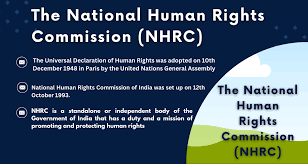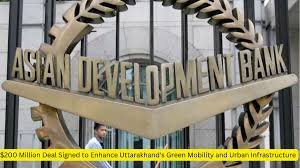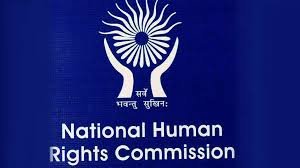National Human Rights Commission (NHRC): Safeguarding Human Rights in India
The National Human Rights Commission (NHRC) of India is a statutory body established on October 12, 1993, under the Protection of Human Rights Act (PHRA) of 1993. Its primary objective is to protect and promote human rights, which include civil, political, economic, social, and cultural rights recognized by the Indian Constitution or embodied in international treaties. The NHRC acts as an independent institution tasked with addressing human rights violations in India and ensuring that the government remains accountable to its citizens.
Role and Responsibilities of the NHRC
The NHRC is responsible for investigating human rights violations, including issues related to custodial deaths, police brutality, child labor, and exploitation of marginalized groups. The commission has the authority to intervene in court proceedings, recommend actions against public officials, and provide relief to victims. It also works to educate and raise awareness about human rights through research and public outreach programs.
Structure of the NHRC
The NHRC comprises a chairperson, typically a retired Chief Justice of India, and other members appointed by the President of India. The chairperson and members serve for a term of five years or until they reach the age of 70. The commission also includes a Secretary-General, who is responsible for its day-to-day operations.
Recent Developments Related to NHRC
In recent years, the NHRC has been proactive in addressing new challenges in human rights protection, including issues arising from the COVID-19 pandemic, migrant laborers’ crisis, and cases of discrimination. The NHRC’s interventions have brought relief to several vulnerable groups, reaffirming its role as a key institution in the Indian legal and social framework.

Why This News is Important?
Addressing Critical Human Rights Violations
The NHRC plays a crucial role in safeguarding the human rights of individuals across India. With an increasing number of human rights violations, the commission acts as a vital institution to ensure that cases of injustice are brought to light, especially those affecting marginalized sections of society.
Government Accountability
The NHRC ensures that government agencies and officials remain accountable for their actions. It provides a legal framework for addressing grievances and gives voice to those who may otherwise be ignored, thereby promoting a culture of transparency and justice.
Awareness and Education
The commission not only intervenes in cases of human rights violations but also educates the public about their rights. By organizing seminars, workshops, and awareness programs, the NHRC contributes to the broader goal of human rights literacy, which is essential for a democratic society like India.
Importance for Exam Aspirants
Students preparing for government exams need to be aware of the functioning and role of institutions like the NHRC. Questions related to human rights and statutory bodies frequently appear in competitive exams, making this an essential topic to study.
Historical Context of NHRC
The concept of human rights in India traces back to the early independence movement, where the struggle was not just for freedom from colonial rule but also for fundamental rights and dignity. The Indian Constitution, adopted in 1950, laid the foundation for safeguarding individual rights, but it wasn’t until the enactment of the Protection of Human Rights Act in 1993 that a formal institution was established to monitor and protect these rights.
India’s growing global presence and its adoption of international treaties, such as the Universal Declaration of Human Rights, influenced the creation of the NHRC. Over the years, the NHRC has been instrumental in ensuring that human rights violations, especially those involving vulnerable groups like minorities, women, children, and the elderly, are addressed promptly.
Key Takeaways from “National Human Rights Commission (NHRC)”
| Sr. No. | Key Takeaway |
|---|---|
| 1 | NHRC was established under the Protection of Human Rights Act, 1993. |
| 2 | It investigates cases of human rights violations across India. |
| 3 | The commission is headed by a chairperson, usually a retired Chief Justice of India. |
| 4 | NHRC can recommend legal actions and compensations to victims of human rights abuses. |
| 5 | It plays a critical role in raising awareness and educating the public about their rights. |
Important FAQs for Students from this News
What is the National Human Rights Commission (NHRC)?
The NHRC is a statutory body established in 1993 to protect and promote human rights in India.
Who heads the NHRC?
The NHRC is headed by a chairperson, usually a retired Chief Justice of India.
What are the main functions of the NHRC?
The NHRC investigates human rights violations, recommends actions against offenders, and educates the public about their rights.
How can individuals file a complaint with the NHRC?
Individuals can file complaints online, through mail, or in person at NHRC offices.
What is the significance of the NHRC in the Indian legal system?
The NHRC serves as an independent body ensuring government accountability, addressing injustices, and promoting human rights awareness.
Some Important Current Affairs Links














